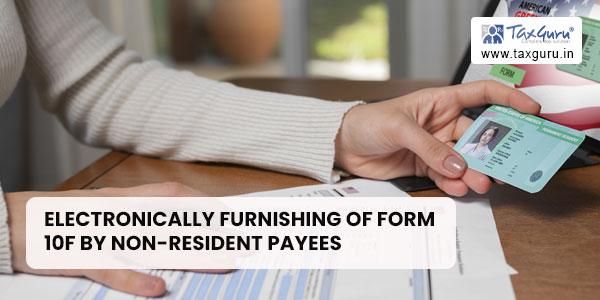♦ Background:
As per the provision contained in Income Tax Act, a resident payer is required to deduct TDS on sum paid to Non Resident payee, if income is chargeable to tax in India. Section 195 of Income Tax provides that payer is required to deduct TDS as per rates in force. The rates in force has been defined in section 2(37) of Income Tax Act which inter alia provides that for the purposes of deduction of tax under section 195, the rate or rates of income-tax specified in this behalf in the Finance Act of the relevant year or the rate or rates of income-tax specified in an agreement entered into by the Central Government under section 90, or an agreement notified by the Central Government under section 90A, whichever is applicable.
Further, provision of section 90(2) of Income Tax Act provides that beneficial rates between rate prescribed in the income tax act and double taxation avoidance agreement (DTAA) entered by India with respective country of Non Resident Payee in respect of withholding rates would be applicable. The relevant tax of section 90(2) of is reproduced hereunder for ready reference.
Section 90(2)“Where the Central Government has entered into an agreement with the Government of any country outside India or specified territory outside India, as the case may be, under sub-section (1) for granting relief of tax, or as the case may be, avoidance of double taxation, then, in relation to the assessee to whom such agreement applies, the provisions of this Act shall apply to the extent they are more beneficial to that assessee. “
The provision of section 90(4) provides that aforesaid beneficial provision contained in tax treaty will not be allowed to non-resident unless he furnishes proof of his residency of his home country. In common parlance it is called tax residency certificate (TRC). Section 90(5) read with Rule 21AB provides that non-resident is also required to give self-declaration in Form 10F, which contains certain information viz. address, phone, email ID, TRC number etc. The relevant text of section 90(4) and 90(5) is as under for ready reference.
Section 90(4) – An assessee, not being a resident, to whom an agreement referred to in sub-section (1) applies, shall not be entitled to claim any relief under such agreement unless a certificate of his being a resident in any country outside India or specified territory outside India, as the case may be, is obtained by him from the Government of that country or specified territory.]
Section 90(5) –The assessee referred to in sub-section (4) shall also provide such other documents and information, as may be prescribed.
While the TRC obtained from tax authorities generally contains most of the information as required under Rule 21AB (1) of the Rules, Form 10F is furnished by the non-resident taxpayer for the balance information.
Therefore, while making any foreign remittance to take beneficial rates as per tax treaty of such country, we have been securing following three documents;
1. Copy of valid Tax Residency Certificate
2. Copy of Form 10F duly signed by Director/Authorized Signatory
3. Copy of No Permanente Establishment Certificate of Non Resident in India, to apply rates prescribed in relevant article of Royalty/Fee for Technical Services/Independent Personal Services/Dividend/Interest etc. of Tax Treaty.
The aforesaid documents were being collected in physical/scan form and retained by us before concluding withholding rates applicable on any foreign remittance.
♦ Need and Importance of Form 10F
In light of above discussion, it is imperative to collect form 10F along with TRC to apply beneficial rates prescribed in Tax Treaty.
Further, rule 37BC provides that if Non Resident do not have valid PAN in India, despite same, provision of section 206AA which prescribe higher rate of TDS (20%) shall not be applicable, if Non Resident payee provides copy of valid TRC along with copy of Form 10F having prescribed information such as name, address, e mail ID, phone number, Tax Identification number of home country. The relevant text of Rule 37BC is reproduced hereunder;
37BC. (1) In the case of a non-resident, not being a company, or a foreign company (hereafter referred to as ‘the deductee’) and not having permanent account number the provisions of section 206AA shall not apply in respect of payments in the nature of interest, royalty, fees for technical services a[, dividend] and payments on transfer of any capital asset, if the deductee furnishes the details and the documents specified in sub-rule (2) to the deductor.
(2) The deductee referred to in sub-rule (1), shall in respect of payments specified therein, furnish the following details and documents to the deductor, namely :—
i. name, e-mail id, contact number;
ii. address in the country or specified territory outside India of which the deductee is a resident;
iii. a certificate of his being resident in any country or specified territory outside India from the Government of that country or specified territory if the law of that country or specified territory provides for issuance of such certificate;
iv. Tax Identification Number of the deductee in the country or specified territory of his residence and in case no such number is available, then a unique number on the basis of which the deductee is identified by the Government of that country or the specified territory of which he claims to be a resident.]

♦ Recent amendments in modes and manner to furnish Form 10F electronically
Central Board of Direct Taxes has issued Notification No. 03/2022 dated 16th July 2022, which mandates that certain forms, including Form 10F, shall be furnished electronically in the manner prescribed under Rule 131(1) of the Rules. Copy of Notification is enclosed as Appendix -1.
Prior to the above-mentioned notification, it is important to note that there was no specified mode of furnishing the form 10F along with the TRC to obtain the benefits of a Double Tax Avoidance Agreement (DTAA). However, post this Notification, it shall now be mandatory to furnish this Form 10F electronically.
The aforesaid notification has casted severe hard ship to non-residents not having PAN in India and therefore, they were not able to furnish Form 10F electronically as do not have e-filing account. Further, to comply with requirement of notification, Non Resident is required to obtain PAN, generate e-filing account to furnish online Form 10F, which he may otherwise not required to obtain PAN as per the provisions of Income tax Act. The requirement was extraneous, extra territorial and causes unnecessary hard ship to Non Resident Payees.
In view of same, several professional bodies have made representation to CBDT to ease down the requirement to obtain electronic furnished Form 10F, CBDT has issued revised and updated notification vide notification F No. DGIT(S)-ADG-3 dated 12.12.2022 to exempts non-resident taxpayers who are not having PAN and not required to have PAN as per the law from mandatory e-filing of Form 10F until Mar 31, 2023. Copy of Notification is enclosed as Appendix -2.
It further, clarifies that such persons may make statutory compliance of filing Form 10F in manual form as was being done prior to issuance of the DGIT(Systems) Notification No. 3 of 2022; This step has been taken after considering practical challenges being faced by non-resident taxpayers not having PAN in making compliance as per the Notification No. 3 of 2022 and with a view to mitigate genuine hardship to such taxpayers.
♦ Interplay of section 139A and 115A of Income Tax Act in case of Non Residents
The aforesaid partial relaxation by notification dated 12.12.2022, provides that electronic furnishing of Form 10F is not required in case where
1. Non-resident do not have PAN and
2. Non Resident not required to obtain PAN
Now, as per provision of section 139A of Income Tax Act, every person who has income from India which is exceeding maximum amount not chargeable to tax is required to obtain PAN in India. Further section 115A states that if non-resident having income from India in the nature of Dividend Income or Royalty & FTS Income shall not require to file Income Tax Return provided gross tax as per rates specified in section 115A i.e. 10.40 % has been deducted by payer in India.
The composite reading of aforesaid section provides Non Resident is not required to file income tax return in India if tax is being withheld as per domestic law i.e. Income Tax Act. However, if beneficial provisions under relevant tax treaty is being claimed with respect to following cases, then Non Resident is required to file tax return and obtain PAN India.
a) lower tax rate provided in the Treaty
b) non-application of surcharge and/ or education cess, which is otherwise leviable under the Act;
c) Benefit of ‘make available’ clause or performance rule provided in the Treaty;
d) Benefit of Article 7 (Business Profits) where the tax treaty does not contain FTS clause and such company does not have permanent establishment in India.
♦ Impact and way forward
In view of above discussion it is safe view that resident payer (Indian payer) should obtain electronic furnished/generated Form 10F (duly filled by Non Resident payee on Income Tax India website and downloaded from it) from the payees who do have PAN or in whose case treaty benefit is allowed to him.
For other cases in which Form 10F & TRC is not required as tax is being deducted as per provision of Income Tax Act. The amendment does not have any impact those case.
Further, one need to see the impact of Significant Economic Presence( SEP) provisions as Indian payer generally take shelter of beneficial provision of tax treaties to escape from sweeping impact of SEP provision enacted in section 9 of Income Tax Act. In these cases, for taking treaty benefit one need to have TRC and Form 10F, the issue would arise in such cases as Non Resident do not have PAN and Income Tax department can insist for online Form 10F.





